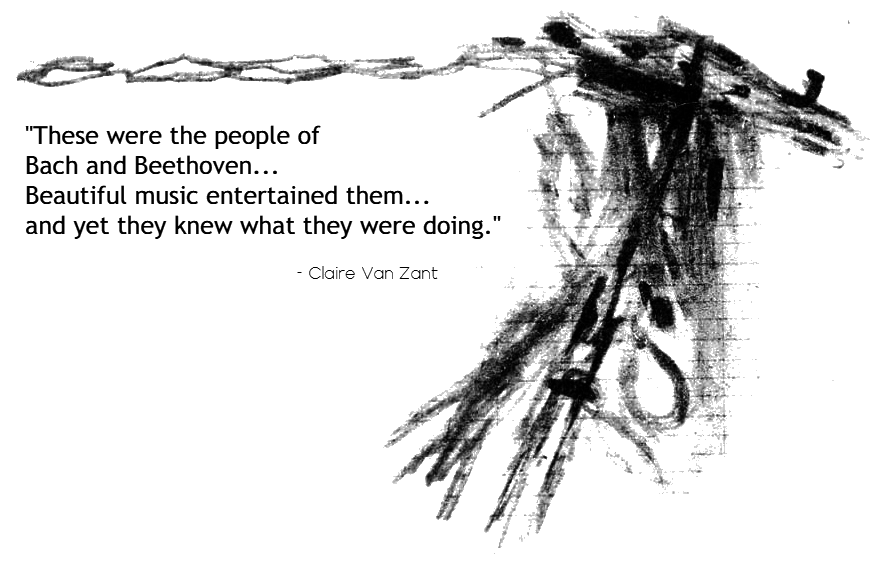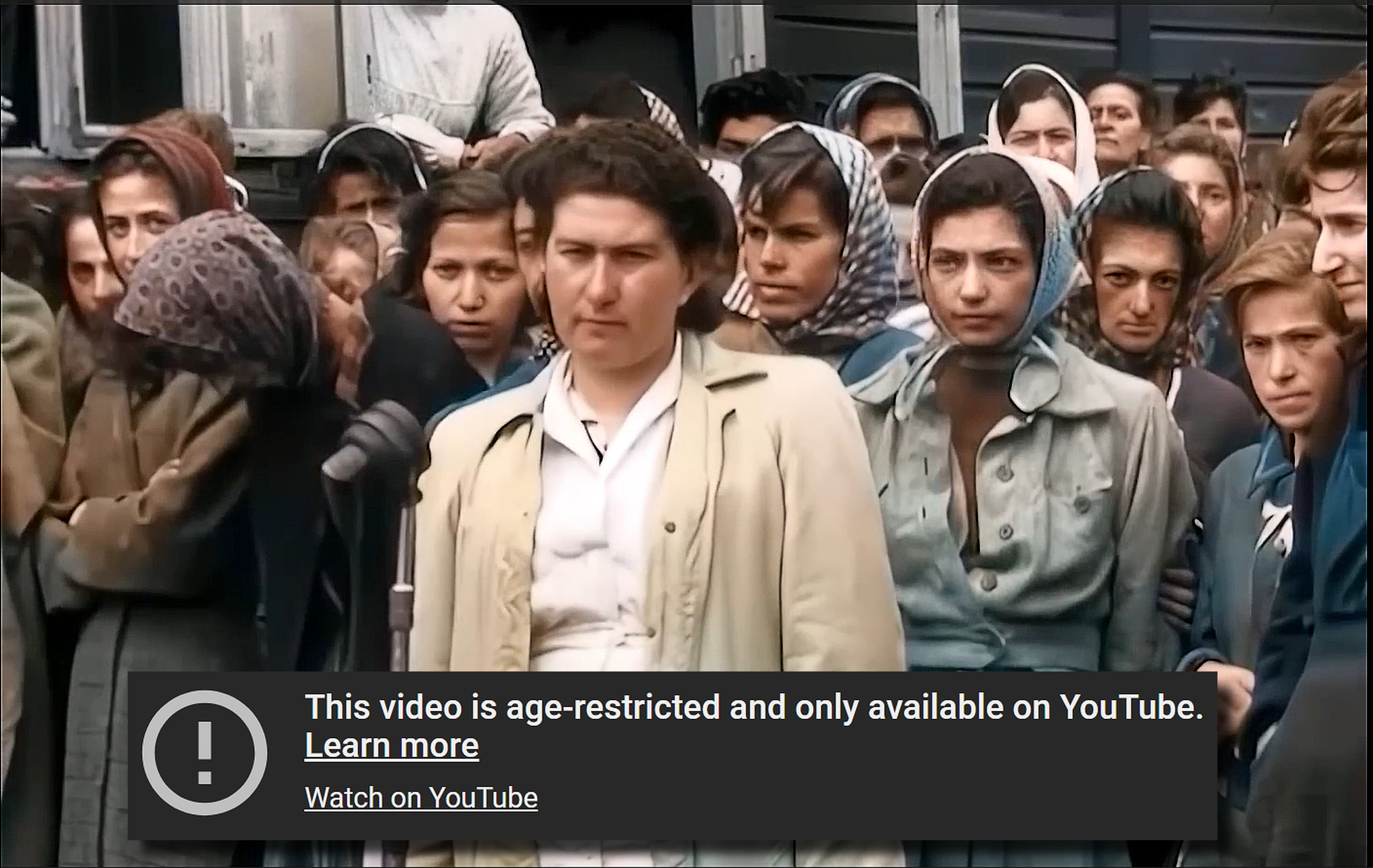|
CLAIRE VAN ZANT AND THE LIBERATION OF BERGEN-BELSENApril, 1945The Bergen-Belsen concentration camp was established in 1940 by the German military at a site south of the small towns of Bergen and Belsen, about 11 miles north of Celle, Germany. Initially, Bergen-Belsen was constructed to house prisoners of war, but subsequently, in April 1943, the SS requisitioned part of the camp to create a civilian detention center and later a concentration camp. At various times, Jews, both men and women; prisoners of war; political prisoners; Roma, criminals; Jehovah's Witnesses, and homosexuals were all imprisoned in the camp complex. From late 1940 onward, prisoners received increasingly limited, essentially starvation, rations, and during the final days of the camp, they went for days without food and with very little water. Sanitation was totally inadequate for the huge number of prisoners who were essentially dumped at the camp in its last weeks. By the thousands, prisoners died from starvation and disease. Among these prisoners were Anne Frank, whose wartime diary would later become world-famous, and her sister Margot. Both died of typhus in March 1945, only a few weeks before the camp's liberation. On April 15, 1945, the British Army liberated Bergen-Belsen. Shocking photographs of dead and dying prisoners drew the attention of the world to the horrific conditions the liberators had found at the camp. Despite heroic British efforts to save people, some 13,000 prisoners died after liberation from malnutrition and disease.
|
|
Keith Berge Interview: Van Zant's Firsthand Account of Bergen-Belsen Claire Van Zant, at the age of 86, sat down with one of her old students Dr. Keith Berge for a little over an hour to discuss her involvement in WW II. Claire speaks candidly here of the horrors of what she experienced. Just preparing to be interviewed was a chore. |
|
Richard Dimbleby describes the scenes of almost unimaginable horror that greeted him as he toured Belsen concentration camp shortly after its liberation by the British in April 1945. Richard Dimbleby was the first broadcaster to enter the camp and, overcome, broke down several times while making his report. The BBC initially refused to play the report, as they could not believe the scenes he had described, and it was only broadcast after Dimbleby threatened to resign. WARNING: Contains graphic descriptions
|

|
Barbed Wire and Beauty
The Problem and the Paradox of Evil - John Lennox at UCLA
John Lennox (Oxford) explores the problem of evil - and why even talking about the problem of evil is curious. | UCLA, 2015
"...How can you on the one hand reject the concept of Good and Evil and say it doesn't exist, and at the same time be very, very vocal in your condemnation of what you perceive to be the problem of evil? Charles Taylor, the brilliant author of this secular age, says this: the Modern Age, more or less repudiating the idea of a Divine Law Giver, has nevertheless tried to retain the ideas of moral right and wrong, not noticing that, in casting God aside, they've also abolished the conditions of meaningfulness from moral right and wrong. As well-educated people do not need to be told, however, that questions such as this have never been answered outside of religion, and it was Friedrich Nietzsche who, perhaps better than anybody else, saw that the consequences of abandoning the Transcendent morality that's based on the biblical Revelation, and which has influenced the West for centuries, would lead to a complete devaluation of all moral concepts."
He predicted that the death of God would lead to a Darwinian imperative of expressing the will to power. The biblical prohibition "Thou shalt not kill," he wrote, is a piece of naivety. Life itself recognizes no solidarity, no equal rights between the healthier and the degenerate parts of an organism; one must excise the latter, or the whole will perish. And in a very significant statement, he said this: when one gives up Christian belief, therefore, one deprives oneself of the right to Christian morality. Christian morality is a command; its origin is Transcendental. It possesses truth only if God is truth. It stands or falls with belief in God. Nature then asks the question: why morality at all, when life, nature, and history are all non-moral?


